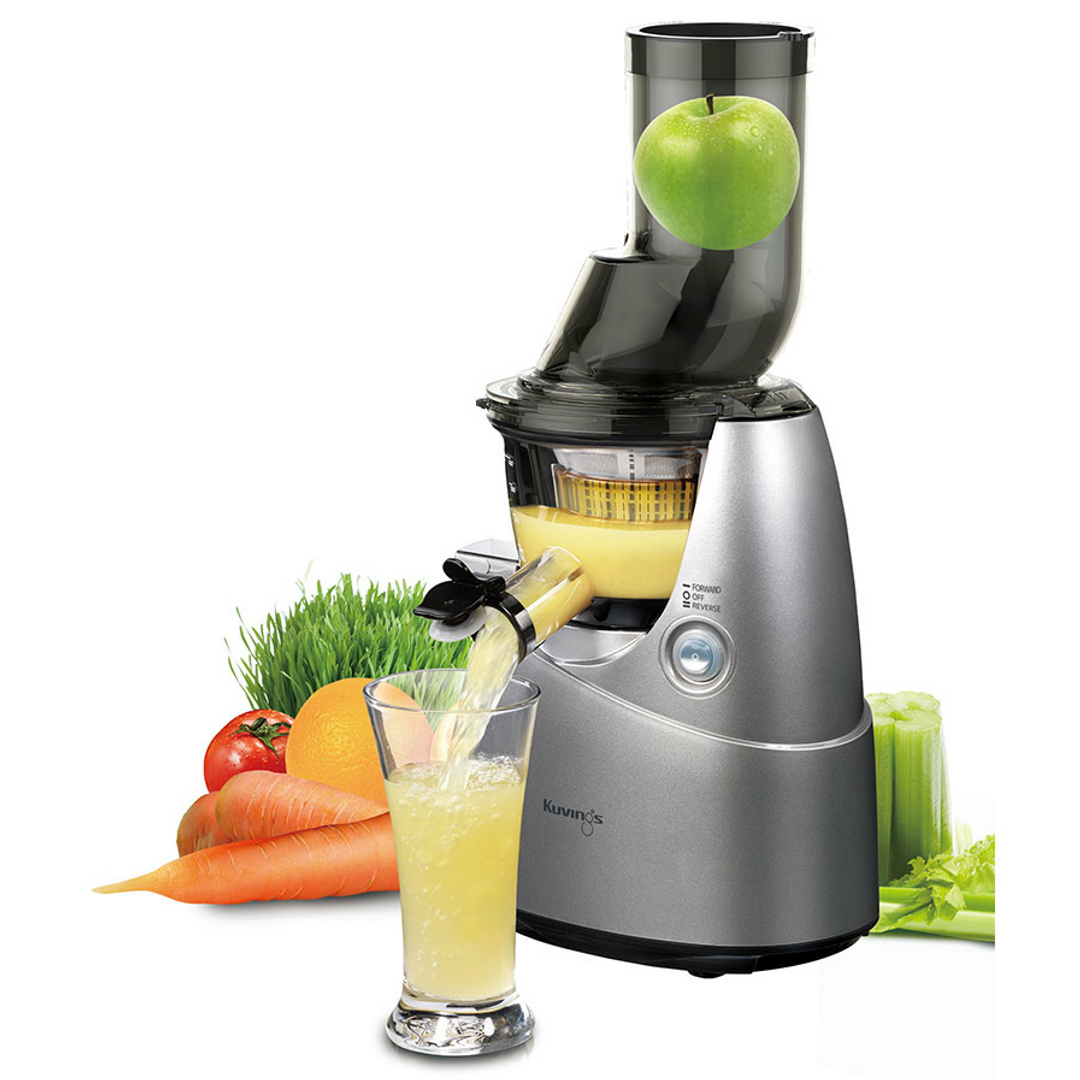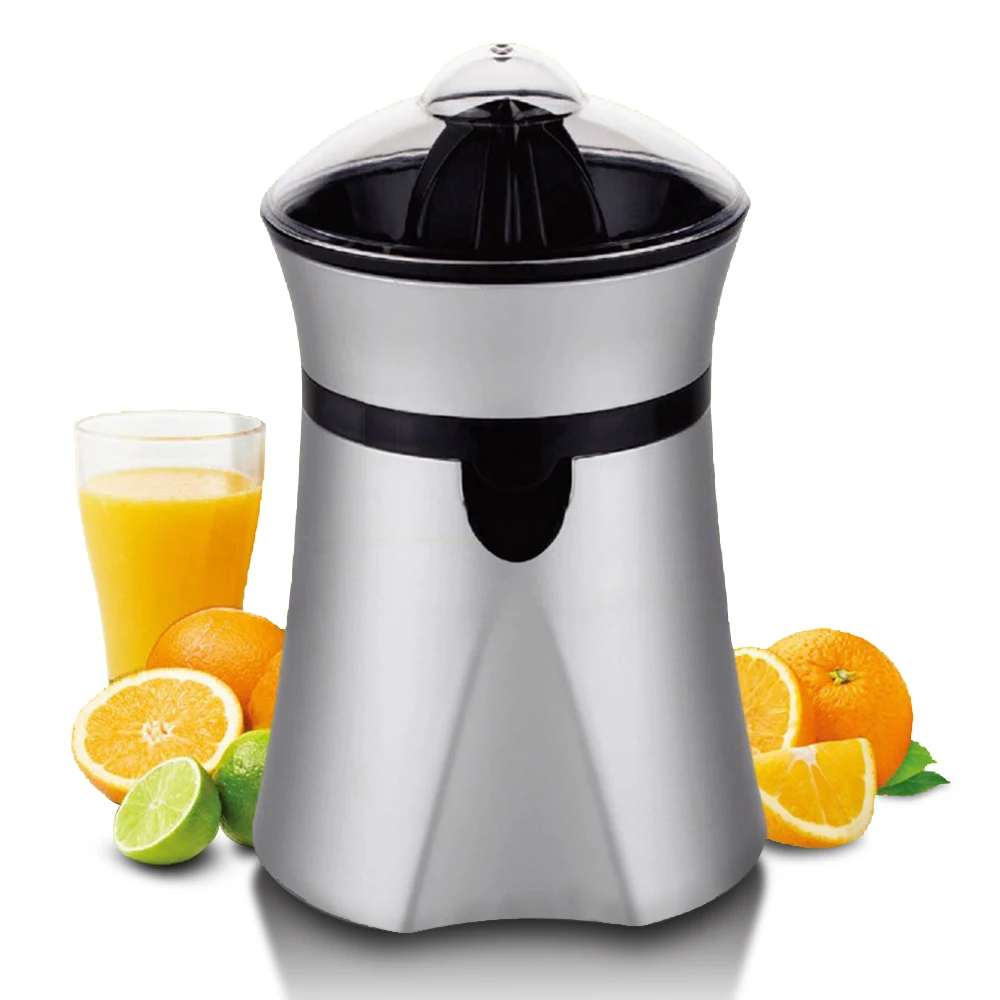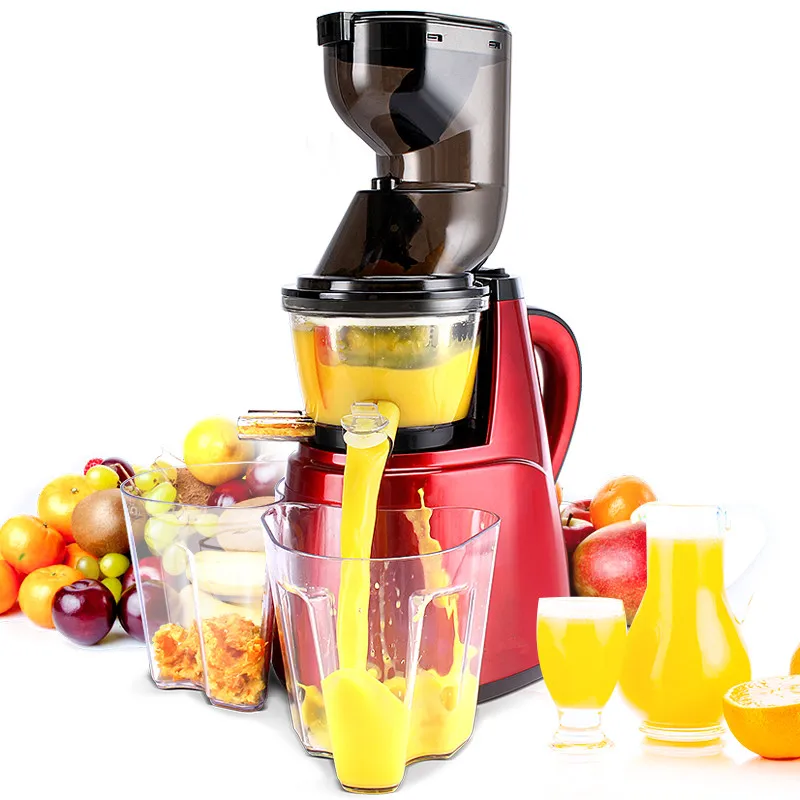Types of Fruit Juicers
Before diving into the specifics, let’s get to know the different types of fruit juicers that are available on the market. Choosing the right type of fruit juicer depends on your personal needs, the types of juice you prefer, and how much time you have for juicing.

- Centrifugal Juicers: These juicers are popular due to their speed and affordability. They work by using a fast-spinning metal blade against a mesh filter, which separates the juice from the flesh via centrifugal force. They’re great for those who are short on time and want their juice prepared quickly.
- Masticating Juicers: Also known as cold press juicers or slow juicers, they work by crushing and then pressing fruit for the highest yield. They operate at a slower speed, which helps preserve the nutrients and enzymes in the juice. If you’re after a higher quality juice and have a little more time to spare, a masticating juicer could be the right choice.
- Triturating Juicers: Triturating juicers are twin-gear appliances that operate by pressing the fruit between two interlocking gears with tremendous pressure. They are excellent for producing very high-quality juices and can handle a variety of fruits.
- Manual Juicers: For those who like to keep it simple and quiet, manual juicers are the go-to. They require physical effort to extract the juice, usually best for citrus fruits and are super easy to clean. This type is perfect for occasional juicers who don’t mind getting a little workout.
Each type has its own pros and cons and is suited to different lifestyle needs and juicing goals. Consider your juicing habits, what fruits you often juice, and other personal preferences when selecting the type that works best for you. In your journey for the perfect fruit juicer, understanding these differences is key to making an informed decision.
Key Features to Look for in a Fruit Juicer
Selecting the right fruit juicer isn’t just about choosing a type. It’s also vital to consider specific features that can enhance your juicing experience. Here are key features to keep an eye out for:
- Powerful Motor: A strong motor ensures efficient juicing and can handle hard fruits with ease.
- Speed Settings: Multiple speed options allow for more control and can help you juice soft and hard produce effectively.
- Wide Feed Chute: A larger chute means less prep time, as you won’t need to cut fruits into tiny pieces.
- Juice Yield: Look for a juicer that extracts a high amount of juice, leaving dry pulp, which signifies efficient performance.
- Noise Level: If you prefer a quieter kitchen environment, consider a juicer that operates with less noise.
- Pulp Ejection: A juicer that automatically ejects pulp can save time and facilitate continuous juicing.
Understanding these features will help you find a fruit juicer that not only suits your needs but also provides convenience and efficiency.
The Importance of Motor Power and Speed
When choosing a fruit juicer, motor power and speed are crucial. These factors greatly influence how well and how fast your juicer can process different types of fruits. Here’s why they’re so important:
- Motor Power: A robust motor can easily handle tough produce like carrots or apples. It ensures that your juicer works efficiently, squeezing out every drop of juice. Without sufficient power, you might end up with chunky, half-juiced fruits.
- Speed Options: Juicers with adjustable speed settings offer versatility. Use a slow speed for soft fruits like oranges to prevent froth and oxidation. Ramp it up for harder fruits like beets to get the most juice out. Varied speed settings mean you can tailor the juicing process to get the best results for each type of fruit.
- Efficient Processing: High motor power coupled with appropriate speeds results in a quicker juicing process without compromising on juice quality. You get to enjoy fresh juice with minimal wait time.
- Preservation of Nutrients: Slow speeds on powerful juicers can prevent heat buildup. This preserves the nutrients in your juice, which might otherwise be lost at higher temperatures caused by high-speed juicers.
The right combination of motor power and speed settings will ensure that your fruit juicer serves you well in both longevity and performance. Keep these factors in mind to find a juicer that works efficiently and matches your juicing lifestyle.
Juicer Material and Build Quality
When shopping for a fruit juicer, don’t overlook the material and build quality. They affect the juicer’s durability and overall performance. Here are key points on why material and build quality matter:
- Durability: Juicers made of high-quality materials last longer. Stainless steel and other sturdy materials resist wear and tear.
- Safe Materials: Ensure the materials that come into contact with juice are safe. BPA-free plastics and food-grade stainless steel are common and advisable choices.
- Stable Operation: Good build quality provides stability when juicing. A well-built juicer shouldn’t wobble or noise excessively.
- Cleaning Ease: Quality materials can be easier to clean. They are less likely to stain or retain odors from different fruits.
- Aesthetic Appeal: A well-designed juicer can enhance your kitchen’s appearance. Sleek and modern designs are popular and can match your kitchen’s style.
Check the juicer’s build and materials closely. You want a machine that can withstand frequent use. It should also be easy to maintain and clean, ensuring it remains hygienic for juice preparation. Invest in quality to enjoy a reliable juicing experience for years.
 Ease of Cleaning and Maintenance
Ease of Cleaning and Maintenance
Choosing a fruit juicer means looking beyond just the juicing capabilities. You’ll want to consider how easy it is to clean and maintain your juicer for it to remain a practical addition to your kitchen. Here are a few essential points to keep in mind:
- Simplicity in Design: Juicers with fewer parts are typically easier to clean. Look for models that won’t leave you struggling with complex assembly or disassembly.
- Dishwasher-Safe Components: Some fruit juicers come with parts that are dishwasher-safe. This feature is a godsend for easy cleanup.
- Removable Pulp Bins: Juicers with removable pulp bins can save you time and effort in throwing out the waste.
- Non-Stick Surfaces: A juicer with non-stick surfaces reduces the time you spend scrubbing off sticky fruit residue.
- Included Cleaning Tools: Certain juicers come with custom cleaning brushes or tools. These can help you reach nooks and crannies that a regular sponge might miss.
- Maintenance Requirements: Understanding the maintenance needed to keep the juicer in top condition is crucial. Look into how often you need to replace filters or service the motor.
Ease of cleaning and proper maintenance ensure your fruit juicer stays in good shape and hygienic for everyday use. It also makes the juicing process more appealing when you’re not dreading the cleanup afterwards. Keep these points in mind to help make an informed choice that suits your lifestyle.
Comparing Centrifugal and Masticating Fruit Juicers
When you set out to buy a fruit juicer, two common types you’ll encounter are centrifugal and masticating juicers. Both have distinct features that make them suitable for different juicing styles and preferences. Here’s a quick breakdown to help you decide which may be the right choice for you.
Centrifugal Juicers: These are the go-to for quick juicing. Here’s why they might fit your routine:
- Fast: They juice fruits swiftly, saving you precious time.
- Convenient: If you’re often in a rush, their speedy operation is ideal.
- Affordable: Generally, they cost less than masticating juicers.
- Easy to Use: Their straightforward design makes them user-friendly.
However, they do have some downsides:
- Louder: They tend to be noisier during operation.
- Less Efficient: With softer fruits, they may not extract as much juice.
- Oxidation: The fast-spinning blades can introduce more air, reducing juice longevity.
Masticating Juicers: If you prioritize juice quality, these could be your match:
- Efficient: They extract more juice and leave drier pulp.
- Nutrient-Rich: Slower speeds mean less heat and oxidation, preserving nutrients.
- Versatile: They handle leafy greens and wheatgrass well.
But consider these points:
- Slower: Juice preparation takes more time than with centrifugal models.
- Costlier: They are an investment, with higher prices upfront.
- More Cleaning: Typically, they require more effort to clean post-use.
In essence, if you value speed and convenience, a centrifugal juicer may be your best bet. For those who don’t mind spending extra time and money for higher juice quality and nutritional content, a masticating juicer could be preferable. Weigh these pros and cons according to your lifestyle and juicing habits to find the perfect fruit juicer for your needs.
Price Range and Brand Recommendations
When selecting a fruit juicer, price range and brand are important considerations that can impact your purchase decision. Here’s what you need to know about these factors:
- Affordable Options: If you’re on a budget, centrifugal juicers tend to be more affordable. Brands like Hamilton Beach and Black+Decker offer quality models without a high price tag.
- Mid-Range Juicers: For those who can spend a bit more for added features and better build quality, brands like Breville and Cuisinart have a range of options. These juicers may include additional speed settings and more durable materials.
- Premium Juicers: Masticating juicers typically fall into the higher price category. Brands such as Omega and Hurom are well-known for their high-quality, efficient juicers that come with longer warranties and superior performance.
- Brand Reputation: Consider the reputation of the brand. Look for brands with positive reviews and customer feedback. A good track record can indicate reliability and customer satisfaction.
- Warranty and Support: Higher-priced juicers often come with better warranties and customer support. Investing more can secure you a fruit juicer that’s supported for a longer time.
The right fruit juicer for you should balance quality with affordability, and fit into your kitchen routine. Keep these price ranges and brand recommendations in mind as you shop for your ideal juicer.
 The Impact of Juicer Size and Design on Kitchen Space
The Impact of Juicer Size and Design on Kitchen Space
When you’re adding a fruit juicer to your kitchen, the size and design can significantly affect your space. Juicers come in various sizes and styles, so it’s important to consider how much counter space you have available. Here are a few things to keep in mind:
- Counter Space: Measure your available counter space before choosing a juicer. A larger juicer might offer more features, but it will also take up more room.
- Storage Options: If you have limited space, consider a smaller, more compact juicer. Think about where you will store the juicer when it’s not in use.
- Design and Style: Modern juicers are designed to be sleek and often complement kitchen aesthetics. Choose a design that fits well with your current kitchen décor.
- Accessibility: Place your juicer where it’s easy to access. If it’s hard to reach or move, you might use it less often.
- Portability: If you plan to move your juicer often, look for a lighter model. This can make it easier to take in and out of storage.
Remember, a fruit juicer should make your life easier, not clutter your kitchen. So think about the juicer’s size and design in relation to your kitchen space. With the right balance, you can enjoy freshly squeezed juices without sacrificing kitchen functionality or style.
